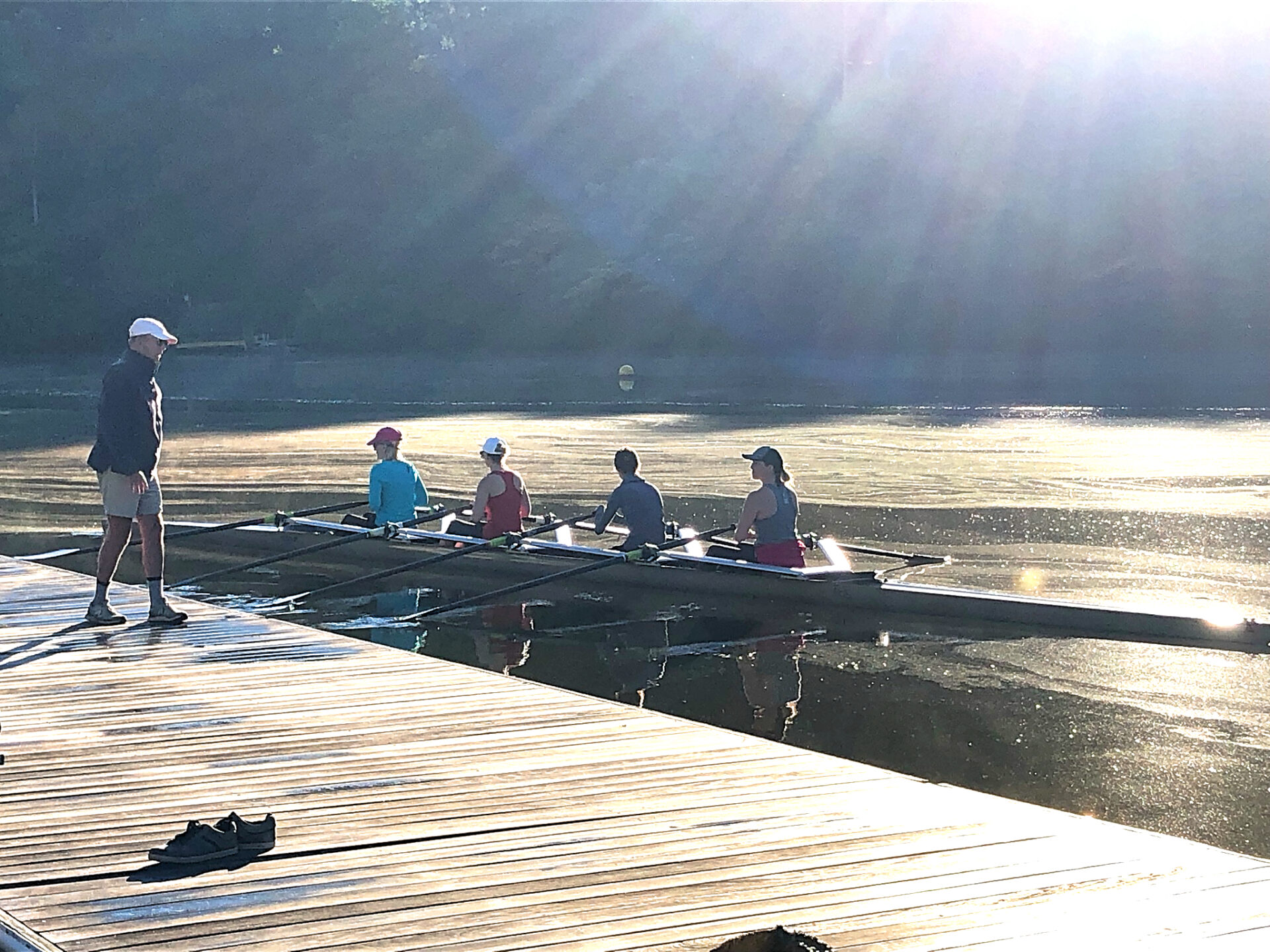
Last summer, bored and feeling as though the Enneagram 7 part of me was suffocating, I signed up for my own “summer camp.”
My children were off to epic summer camps, learning new things and exploring their abilities. Why not me? Could I use the long, hot summer days to explore the world, too? Could I learn something I’ve always been intrigued by but never had time to do? Surely, the answer was yes. Again, I saw my kids doing this.
As we have shared on The Family Trip, our goal has always been to thread the needle of maintaining a traditional life for our kids but also having adventures. It is constantly fighting the battle against the routine and mundane. Trying to figure out how to balance this all, though, has been…well…a trip. Pushing myself to mimic my kids’ summer camp was trying to find a new balancing point.
I signed up to learn to row. The class was three days a week – very painfully early in the morning. It was meant for beginners to learn how to scull.
To be honest, this “summer camp” idea of mine wasn’t a success. (Which, based on this experience, I shouldn’t have been surprised.)
I felt deflated and getting to each lesson (simply not quitting) took considerable discipline – and help from Mr. Family Trip. The 5:00 am alarm would bleat and it took all the voices in my head arguing for at least 15 minutes before I convinced myself to get out of the house and finish what I started.
I complained a lot about this – it not being lost on me that my kids never complained about their summer camps, not even when they were pushed to do things they didn’t like. Was I now too sheltered and complacent? Had my life become too easy?
Surprisingly, a book I read afterwards help me process 1) why I was drawn to this, 2) why it was not a great experience, and 3) why I still won’t stop trying new things.
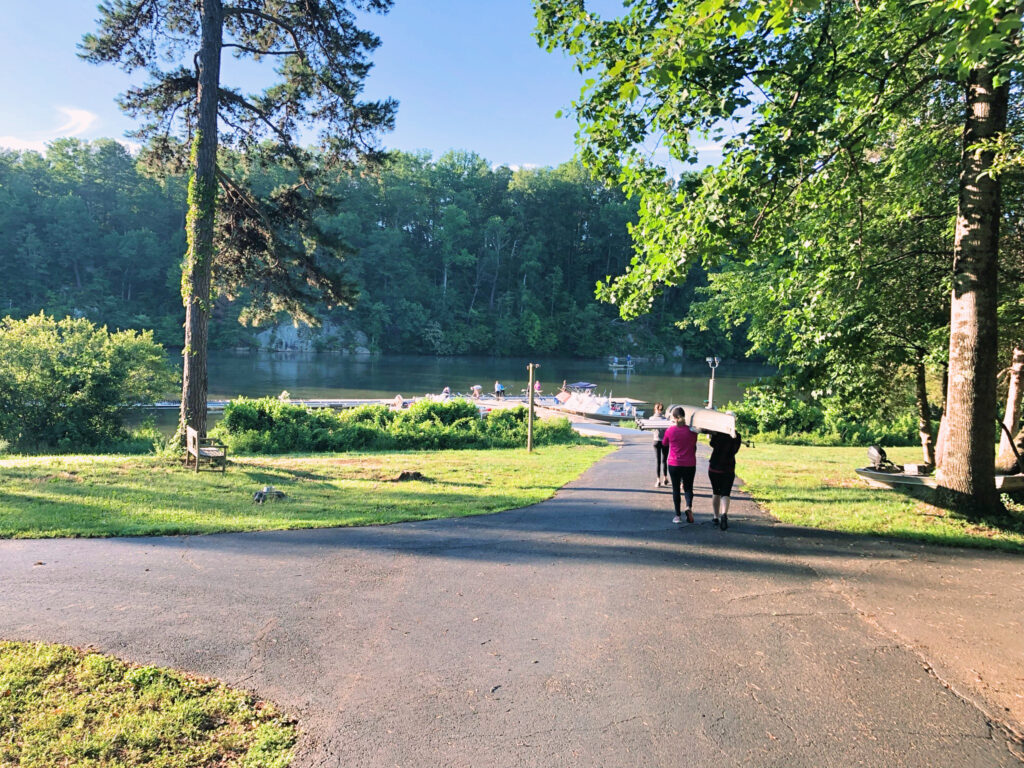
Working from home through COVID, as well as the bludgeoning emotional exhaustion of the pandemic, had left me incredibly bored. I was languishing. I thought this might revive some pep and enthusiasm.
Why I picked rowing in particular I couldn’t exactly say. Until, that is, I read the book Beginners: The Joy and Transformative Power of Lifelong Learning by Tom Vanderbilt.
Vanderbilt’s new book is about the psychology and science of being a beginner, wherein he also shares some very vulnerable personal perspectives about what it feels like to stink at something we’re just beginning.
In launching his journey, he writes:
I wasn't necessarily looking for skills that represented some kind of professional development, as worthy as that endeavor is. I have a job; I wasn't looking for another, or anything that much felt like work. More than looking to make myself more marketable to employers, I wanted to make myself more marketable to me.
p. 21, Tom Vanderbilt Tweet
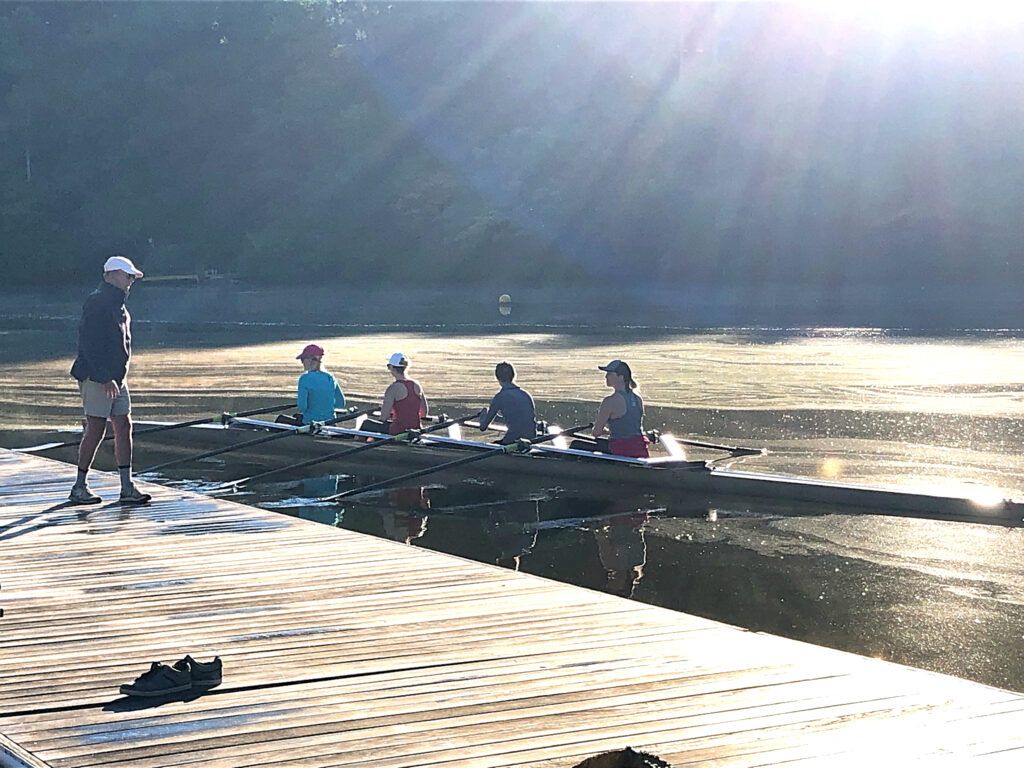
So there I was: looking to make myself more marketable to ME.
I wanted something that was mine. I didn’t want my new experience to involve teaching, classes for work-based certifications, or maintenance hobbyism that had kept me in a happy comfort bubble for years. I wanted to experience a challenge – to see what I had and maybe surprise myself.
It turns out, rowing is hard. Very hard.
One hand is slightly above the other so the length of the oars can be accommodated. But if one gets even a quarter inch too high from the other, balance is gone. Timing is crucial as the legs create the thrust, the abs sharply contract, and the spine lengthens to new proportions. The gaze has to be out on the horizon for balance but simultaneously intimately attuned to the others’ in the boat, even if they are behind you.
All of the technique involved in rowing (balance, micro-movements, finely-tuned technique, and physical fitness) is a lot. Especially for a beginner.
(Sidenote: I also truly hated the early morning. Some people can do 5:00 am wake-up times. I am not one of those people.)
But those things aside, there were other reasons I didn’t enjoy my rowing “summer camp” that I was having problems articulating.
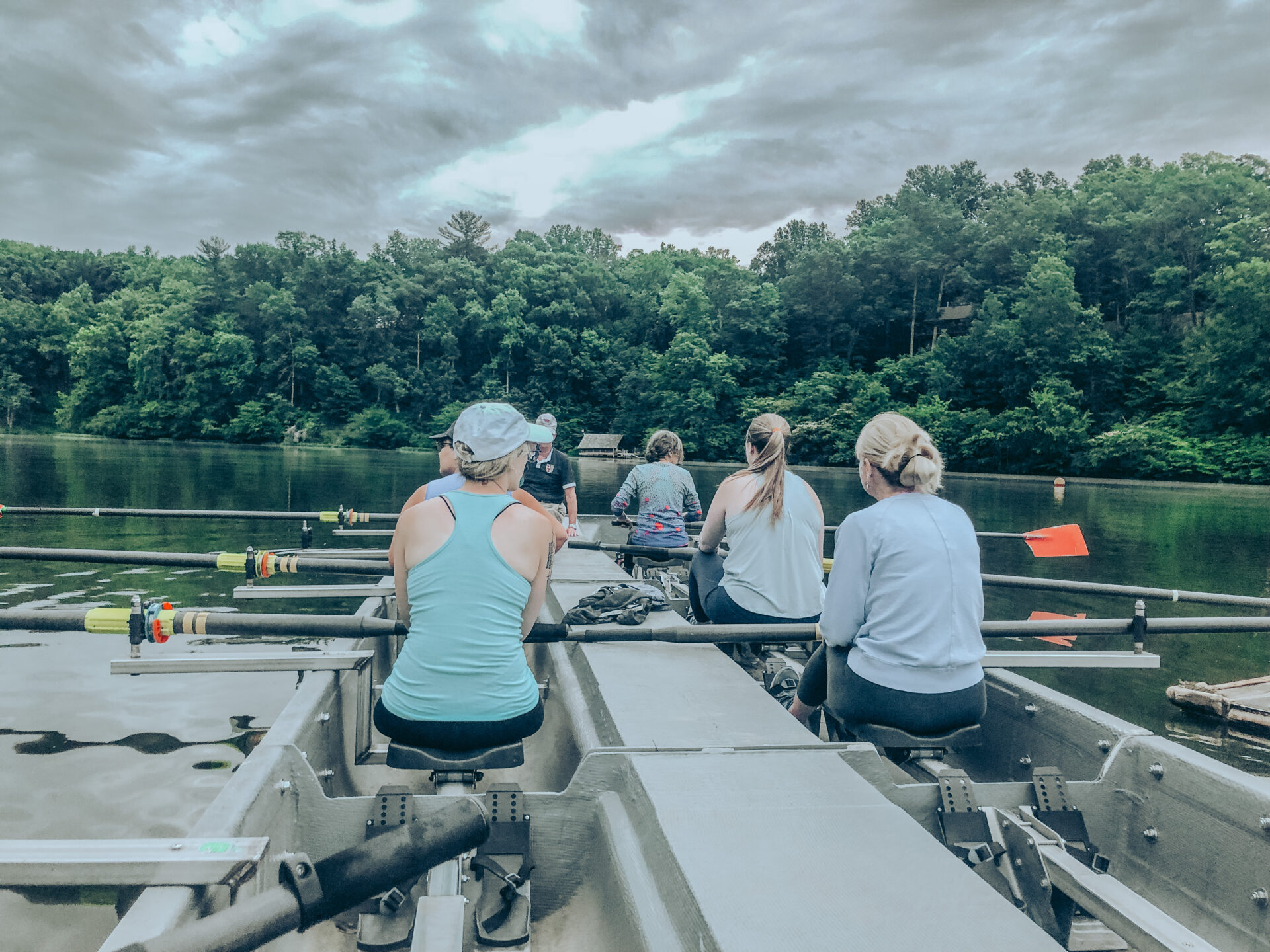
But, again, Vanderbilt’s book helped. It helped because it made me realize that it wasn’t about being a beginner and being challenged that I didn’t enjoy here. It was just this particular atmosphere.
The group was full of a lot of people who were, like me, very motivated individuals, usually very successful at whatever they did. It wasn’t long before competition and angst over who was placed where in what boat and in what seat started to sneak in to the early mornings. Dealing with competition and angst pre-coffee should be prohibited.
Some people can let that environment fuel them, or simply ignore it. Again, I am not one of those people. I felt judged. When coach had us all in one long boat the final class, me sitting stroke with a new instructor calling, things were just awful. I was failing when I knew everyone was watching me and simultaneously wondering why I got preferential treatment.
Put simply: it stopped being fun.
I don’t mind failing (trust me on that – this little blog is a great example how I don’t think I have to be the best!). I also have no qualms about quitting (again, trust me on that or ask for my resume). But I do not like competition, feelings of being seized up and being found lacking, or of letting people down.
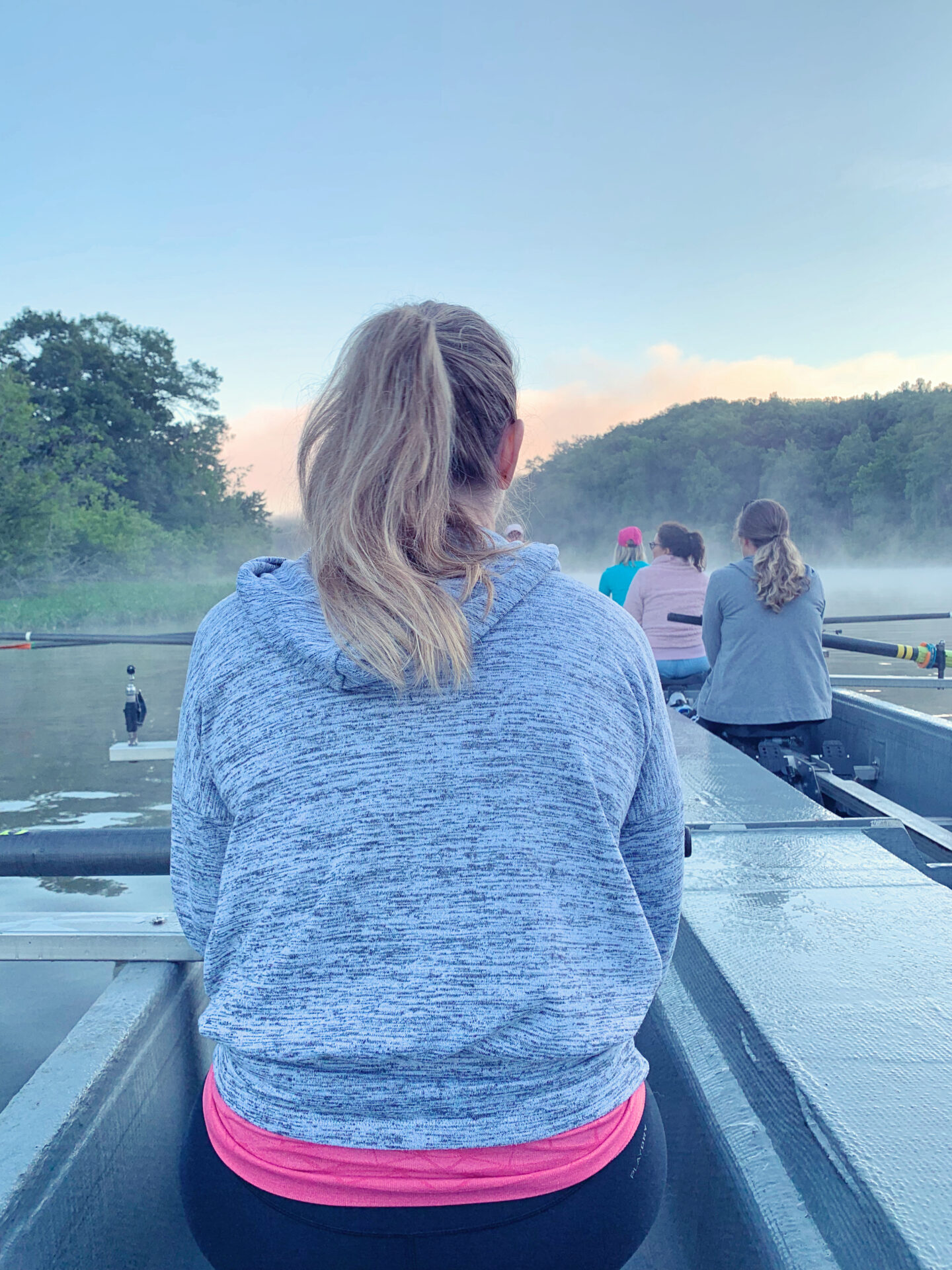
But, again, Vanderbilt’s book brought words to something else I was experiencing in all of this.
While I felt judged and frustrated, while it stopped being fun, I also was wildly proud of myself.
I kept wondering why it was that my sense of accomplishment was through the roof at this thing I really wasn’t any good at, while my professional environment, where I am able to achieve weekly, rarely moves me to such a sense of achievement.
As Vanderbilt explains:
Being a beginner is hard. It feels better to be good at something than to be bad.
Beginners ask the same obvious questions, suffer from the same misconceptions, make the same mistakes. Every field has its nervous beginners.
For all the bumps and bruises, the gaffes and blunders... being a beginner can be a wonderful thing. I hope to reveal to you something that I've become convinced of: that there is magic to the early stages.
Your brain is in a state of hyperawareness, bathing in novelty, and almost overwhelmed as it tries to understand why the three-point shot you just unleashed and thought was perfect was actually an air ball...
As you plunged into learning some art or skill, the world around you appears new and bursting with infinite horizons. Each day brims with new discoveries as you take your tentative first steps, slowly pushing the bounds of exploration. You make mistakes, but even these are empowering, because they are mistakes you have never made before.
You're freed from the worries of "impostor syndrome" -- that anxiety of not being the expert you're cracked up to be -- because no one actually expects you to be any good. You're liberated from expectation, from the weight of the past. In Zen Buddhism, this state is referred to as beginner's mind.pp. 24-26, Tom Vanderbilt Tweet
As I dog-eared that page months after rowing had ended, clearly aware that the Olympic team was not going to be calling me, I knew that this was the key to opening what I had experienced.
Rowing, despite the ugly parts, was beautiful. I saw the early morning river mist more acutely than ever as everything in my body had to become aware of my environment so I didn’t tip the damn boat.
Where this experience became fraught was when expectation was welcomed into the boat. But, in the first few weeks before that happened, the beginner’s mind was heaven. My mind was so clear as everything I could give had to be laser-focused. Thrust, pull, snap, release…thrust, pull, snap, release… over and over again.
I am, in retrospect, glad I did my summer camp. I had higher hopes for rowing becoming a part of my life (another comfort bubble hobbyism?). But it’s not going to be. That’s okay.
Sometimes it’s not about being good at something.
Sometimes it’s about being a bad beginner.
Bathing in novelty is it’s own brilliant reward.
So go out and go be a bad beginner at something. You won’t regret it.

